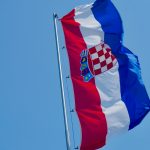A young Croatian scientist from the Faculty of Economics in Zagreb has stated his opinion on just what Croatia’s deep attachment to tourism and little else is actually doing to the country. As Novac writes on the 9th of September, it isn’t all as much of a walk in the park as many who rely on Croatia’s strongest economic branch think it is.
”If there were no tourism, I believe that Croatia would be among the winners of the transition [countries] because we’d not be able to continue going down this wrong path,” said Velibor Mačkić of the Zagreb Faculty of Economics for Novi list, adding that “tourism is an absolute curse of resources” and that without it “we’d have behave in a different way”.
According to Mačkić, people in Croatia today aren’t seeing investing in knowledge worth bothering with because ”why would someone invest in knowledge and graduate from a university that lasts for a minimum of five years and then get a job and have to pay huge amounts of income tax when they can stay in Primorje, Istria or Dalmatia and rent out some apartments and pay only a flat rate for doing that.”
In addition, he said that there is no real need for innovation in Croatia, because “jobs in Croatia aren’t obtained because you’re more cost effective or innovative, but because you know the right people.” As a result, the perception of the state, and so the state itself, has become very weak.
”The state grew in size, but was increasingly inefficient and actually ”broke glasses” when it brought the food to the table,” Mačkić describes in illustrative terms.
”Instead of moving towards neo-corporatism, the Croatian state ended up as a weak state and is now in the ranks of the likes of Bulgaria and Romania,” Mačkić explained.
To remedy all of this, the young scientist believes that we must start from a position of absolute transparency, both in terms of the budget and in the adoption and implementation of public policies and procurement processes.
”After that, then, rather paradoxically but unfortunately necessary in the domestic context, we’d need to reach a consensus on the importance and role of the public sector in the production of public good, correcting market failures and laying the foundations on which the private sector can secure and build the unprecedented competitiveness of its goods and services.
This includes the termination of the crusade against the so-called ”uhljebs”. Then, local and regional self-government unit employees will be brought into line. The politically determined and unnecessarily large number of local and regional units should be viewed in the context of administrative decentralisation, but more importantly fiscal decentralisation,” says the young scientist.
”At this point, the next recession automatically implies a fall spending and revenue from VAT, while increasing expenditures on social services, ie, an increase in the budget deficit. The cards are split, those sitting at the table have no incentive to change anything. So the impetus for change can only be external. Only the next crisis can inspire us to change and that’s Croatia’s biggest tragedy,” he told Novi list.
He also said that “Croatia had missed the chance to change under the burden of the past crisis.”
”Milanović’s government sought to change the structure of the economy, initially trying to stimulate the economy with private investment, so a phase in which we were trying to do this with government spending ensued, but by joining the EU and the excessive deficit procedure, this all stopped.
In 2014, for the first time since 1993 and 1994, we recorded a positive contribution of net exports to GDP. But as this could not generate GDP growth, in 2015, by parametric changes in the income tax system, Minister Lalovac increased personal consumption, which also ensures GDP growth.
Orešković’s government then came into power, and Plenković’s government is doing the exact same thing, and since 2017, we’ve completely cancelled the contribution of foreign demand and are back to domestic demand as a motor for GDP growth. Unfortunately, Croatia hasn’t learned anything from the past recession,” explained Mačkić.
Make sure to follow our dedicated lifestyle and business pages for much more.







